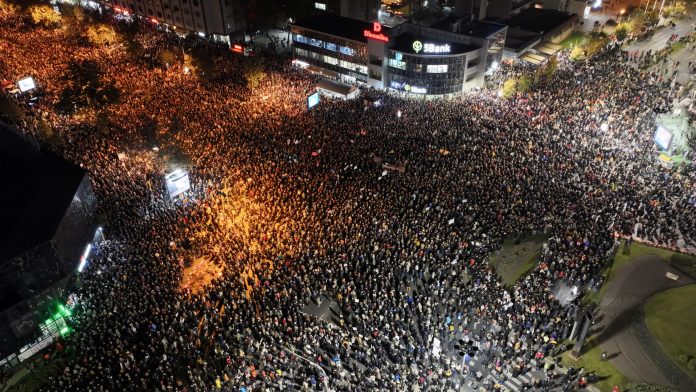Tens of thousands of people gathered in Belgrade for one of the largest anti-government demonstrations in recent years, demanding accountability for the collapse of a canopy at a railway station in Novi Sad.
The protest on Sunday, 22 December, led by students and farmers occupied the main roundabout in the Serbian capital, bringing traffic to a standstill. Participants honoured the victims, including the 15 dead, with a 15-minute silence.
The canopy collapse on 1 November marked a turning point of discontent with President Aleksandar Vučić and his ruling Serbian Progressive Party (SNS). Opposition leaders and protesters blamed the disaster on poor construction and alleged government corruption.
The demonstration was the latest in a series of protests sweeping Serbia over several weeks. Students and farmers demanded the release of detained activists and an end to legal proceedings against participants in previous demonstrations. They also called for accountability for alleged attacks on protesters during the first rallies after the collapse.
The Chinese-led reconstruction of Novi Sad station was thoroughly scrutinised after Serbian Railways said the project ruled out the collapsed concrete overhang. The Higher Public Prosecutor’s Office in Novi Sad said on Saturday that 11 people, including former Construction Minister Goran Vesić and former Railway Infrastructure Director Jelena Tanasković, had been arrested in connection with the collapse.
If convicted, they could face up to 12 years in prison
Critics accused the SNS of systemic corruption, electoral fraud and undermining democratic institutions. Despite widespread discontent, however, the protests are unlikely to lead to significant political change. The opposition remains divided and unable to present a cohesive alternative to the ruling party, political experts emphasise.
